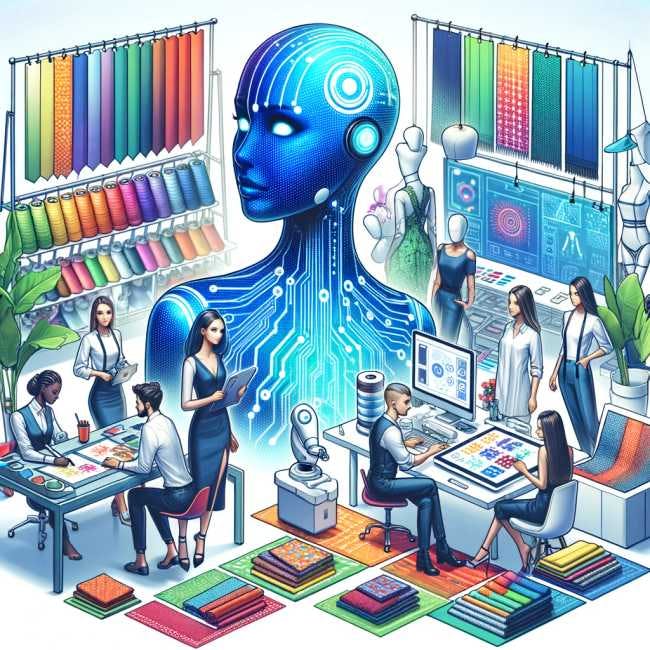We may earn compensation from some listings on this page. Learn More
We may earn compensation from some listings on this page. Learn More
Step onto the cutting edge of style with AI fashion tools, where technology meets trendsetting to redefine the essence of fashion innovation. In this exciting new era, AI is not merely an adjunct to the fashion industry; it is a transformative force, reshaping the very fabric of how fashion is conceived, created, and consumed. From igniting creative design processes to personalizing the shopping experience, AI empowers designers, brands, and consumers alike, infusing the fashion world with new levels of creativity, insight, and efficiency. As you explore this page, you'll discover how AI is stitching together the future of fashion, offering tools and insights that promise to elevate the industry to new heights of sophistication and allure. Embrace the vanguard of fashion technology and weave a future where style knows no bounds.
In This Document:
AI Fashion Tools ↓
Deepening AI's Impact on Fashion ↓
AI's Influence Across Fashion Ecosystems ↓
Embracing AI for a Forward-Thinking Fashion Industry ↓
Unleash AI-powered photo generation and personalized character creation.
Thinkdiffusion is an accessible and user-friendly tool that provides access to powerful AI image generation capabilities directly from your browser, with no coding or setup required.
Personalize sustainable fashion with an AI stylist and virtual try-on.
Transform your portrait photos with custom outfit ideas using SnapDress.
Transform e-commerce imagery with AI: lifelike models, advanced editing, and dynamic backgrounds.
AI transforms your fashion ideas into wearable art, swiftly and uniquely.
Get fashion advice from AI. Ask questions & dress your best!
Prototype fashion designs with AI to visualize product designs before production.
Reduce cost & time of fashion photo creation, with 10x more outputs.
Revolutionize fashion with AI design, global manufacturing, and seamless logistics.
AI-powered shopping assistant, leveraging ChatGPT to offer users a seamless way to discover and purchase a diverse array of products.
» Try These: AI Marketing Tools
The adoption of AI in the fashion industry is not just reshaping current practices but is also paving the way for a future brimming with possibilities:

As we witness AI's expanding role in fashion, it becomes evident that its influence is multifaceted. It enhances efficiency and personalization while also fostering greater innovation and sustainability. By embracing AI, the fashion industry is stepping into a future where technology and human creativity flourish together, creating a tapestry of fashion that is more inclusive, responsive, and imaginative.
The fashion industry's embrace of AI paves the way for a future where innovation, efficiency, and sustainability are seamlessly interwoven. AI is revolutionizing design processes, supply chain management, and consumer interactions, ushering in a new age of fashion that is both forward-thinking and grounded in ethical practices.
Through generative AI, designers gain a powerful tool for creative expression and waste reduction, while predictive analytics help brands anticipate trends and optimize their operations for sustainability. AI-driven customer engagement platforms offer personalized experiences, fostering deeper connections between brands and consumers.
Virtual fitting technologies and AI-customized apparel are redefining retail, reducing waste and enhancing consumer satisfaction. As the fashion industry aligns with AI's capabilities, it sets a course toward innovation and a commitment to eco-conscious and consumer-centric values.
Adopting AI isn't just about staying current and actively shaping a more dynamic, responsible, and personalized fashion future. This journey, powered by AI, positions the fashion industry as a leader in embracing change, ready to meet tomorrow's challenges with creativity and resilience.